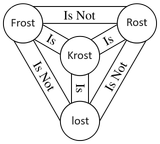>>513710895
The Argument for Centralized Currency as Communistic: Value Creation, Distribution, and Labor
The notion that a centralized currency system is inherently communistic can be examined through the lenses of value creation, distribution, and the role of labor. In a centralized currency system, a central authority—such as a government or a central bank—manages the issuance and regulation of the currency. This centralization is reminiscent of the control mechanisms found in communist economies, where the state dictates economic activities. In both systems, the central authority has the power to influence the currency's value through monetary policies like quantitative easing or interest rate adjustments.
In a capitalist system, individuals and businesses generate value through labor and innovation. This value is reflected in the goods and services they produce, which are then exchanged for currency. However, in a centralized currency system, the currency's value is not solely determined by the labor and productivity of its users. Instead, it is influenced by the decisions of the central authority, which can create a disconnect between the value created by labor and the value represented by the currency.
A fundamental principle of communism is the redistribution of wealth from producers to non-producers. In a centralized currency system, this redistribution can occur through inflation. When the central authority increases the money supply by printing more money, it can lead to inflation. This inflation effectively redistributes wealth from those who hold the currency (savers and fixed-income earners) to those who borrow money (debtors and spenders). Borrowers benefit from the devaluation of the currency, as they repay their debts with less valuable money.









